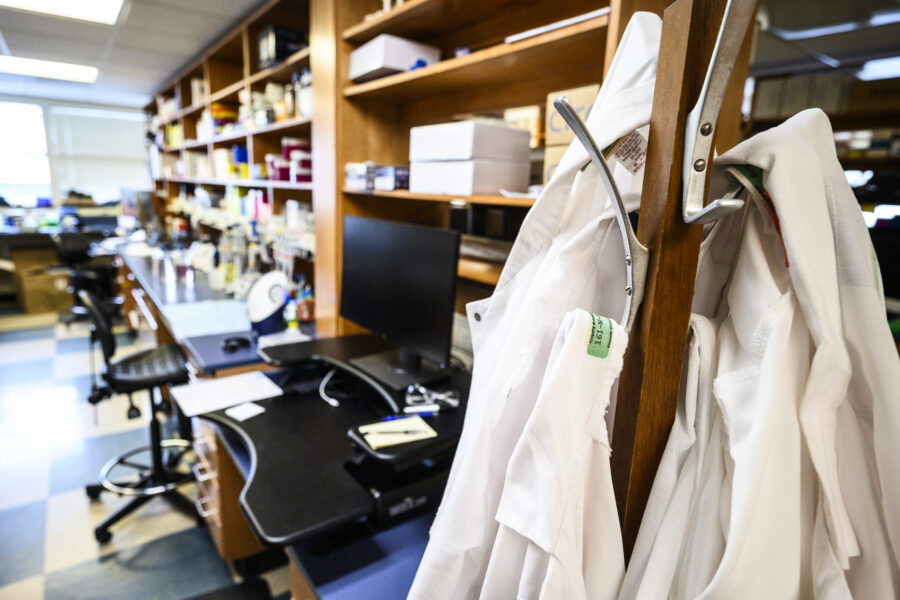About Nuclear Medicine Technology
According to the Society of Nuclear Medicine & Molecular Imaging (SNMMI), Nuclear Medical Technologists prepare and administer radioactive chemical compounds (or radiopharmaceuticals) to patients to create images and provide information to a Nuclear Medicine Physician for diagnosis and treatment. They may also be involved in research.
For more information, visit the Mayo Clinic College of Medicine and Science website. For the most up-to-date salary information, visit the U.S. Bureau of Labor Statistics website.
Note: UW-Madison does not offer a Nuclear Medicine Technology program. While this field is not among CPHA’s primary areas of advising expertise, we are here to support you in exploring the career, building helpful experiences, and navigating some aspects of professional program applications. Talk with us if you have questions!
Nuclear Medicine Technologist (N/NMT)
To become a Nuclear Medicine Technologist (N) certified through ARRT, students need to earn an associate’s degree or higher and complete an ARRT-approved Associates, Bachelor’s or Certificate program in Nuclear Medicine Technology. They will then need to satisfy an ethics requirement and take a certification exam through American Registry of Radiologic Technologists (ARRT).
To become a Nuclear Medicine Technologist (NMT) certified through NMTCB, students need to graduate from an NMTCB approved Nuclear Medicine Technology program accredited through JRCNMT. They will then need to take the NMTCB Certification Exam.
If you have a background in Nuclear Medicine Technology and are certified through ARRT or NMTCB, it is possible to become a CT Technologist, MRI Technologist, Bone Densitometry Technologist, or Vascular Sonographer through the American Registry of Radiologic Technologists (ARRT) post-primary certification process.
Explore Your Interest in Nuclear Medicine Technology
Shadowing & Informational Interviews
An excellent way to explore your interest in Nuclear Medicine Technology is by talking to a Nuclear Medicine Technologist and observing their work directly. If you have friends or family who work in health care (in ANY role) ask if they know any Nuclear Medicine Technologists or look for professionals on LinkedIn or Instagram to see if they are willing to talk about their career.
Volunteering
Nuclear Medicine Technology programs may look for applicants who demonstrate a sustained commitment to serving others. Learn more about opportunities to volunteer in clinical and non clinical settings.
Jobs
After volunteering and exploring, working in research or a healthcare setting, potentially providing direct patient care, is a great way to learn about practical aspects of the field. Look for technologist assistant or aide positions at hospitals. Some of these roles might offer on-the-job training.
Finding a Program
Explore programs accredited through the Joint Review Committee on Education Programs in Nuclear Medicine Technology (JRCNMT) that are recognized by the Nuclear Medicine Technology Certification Board (NMTCB) including the program at UW La Crosse and the program through Froedtert Hospital and MCW
Explore ARRT’s list of approved programs.
Application Process
Associate and Bachelor’s programs typically require that applicants apply to the institution as a degree seeking (or second degree) student.
However, there may be other requirements to apply to their Nuclear Medicine Technology program once admitted to the institution including prerequisite courses, a personal statement, a specified number of observation hours, references etc. Requirements vary from school to school, so it’s always necessary to consult program websites.
Certificate programs may require you to be enrolled in an affiliate institution’s Associate’s or Bachelor’s program or have completed a Bachelor’s degree in Science or a Science-related major. They may also require prerequisite courses, a personal statement, letters of recommendation, etc. Prerequisite courses may include algebra, statistics, general chemistry, general biology, general physics, anatomy and physiology, oral and written communication courses, etc. However, requirements vary from certificate program to certificate program, so it’s always necessary to consult program websites.
Some programs may have fee waivers available. Contact them directly for more information.


